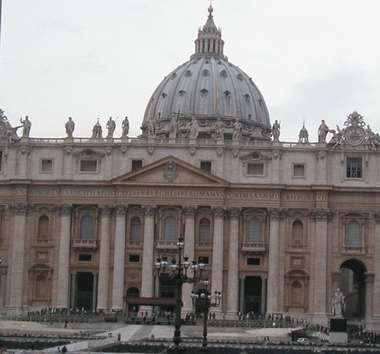Vatican dodges UN sex abuse questions

NICOLE WINFIELD, Associated Press
VATICAN CITY (AP) — The Vatican on Tuesday dodged a series of questions posed by a U.N. committee about clerical sexual abuse by noting that the Holy See doesn't control the actions of every Catholic in the world, much less regulate every Catholic priest, parish or school.
Rather, the Vatican asserted that local bishops are ultimately responsible for keeping children safe from pedophile priests, and that schools and workhouses where abuse occurred in Ireland and elsewhere are subject to local civil laws and regulations, not Vatican jurisdiction.
The Vatican's position was laid out in a response to the U.N. Committee on the Rights of the Child about its implementation of the 1989 U.N. Convention of the Rights of the Child, the main U.N. treaty guaranteeing a full range of human rights for children.
The Holy See ratified the convention in 1990 and submitted a first implementation report in 1994. But it didn't provide progress reports for nearly a decade, and only submitted one last year after coming under renewed pressure following the 2010 explosion of child sex abuse cases in Europe and beyond.
The U.N. committee posed a series of questions about the 2012 progress report and will grill the Vatican delegation in person at a committee hearing in Geneva on Jan. 16.
The Holy See ducked many questions by asserting that international treaties are territorial in nature, and that the treaty therefore can only be implemented in the territory over which the Holy See exercises control: the tiny Vatican City State, the 44 hectares (110 acres) in the center of Rome where a total of 31 children under age 18 currently live.
"The Holy See does not accede to or ratify human rights treaties on behalf of every Catholic in the world," the Vatican said. "Every person must comply with the laws of the state in which they live."
That said, the Holy See did take credit for encouraging policies and practices throughout the Catholic Church at large to fight abuse, protect children and keep abusers out of the priesthood. It noted that it has required bishops' conferences around the world to develop guidelines for combatting abuse and changed the Vatican's own universal church law to better discipline abusers.
And as far as the Vatican City State goes, the Holy See reported that Pope Francis updated the territory's laws last summer, listing sexual violence, prostitution and possession of child pornography as crimes against children that can be punished by up to 12 years in prison. Swiss Guards are getting training on human rights and the city state is developing a "safe environment" program for children, the report said.
The Vatican's response echoed the arguments it has employed in the past to defend itself against lawsuits and accusations that it was complicit in the abuse of children by fostering policies and a culture of secrecy that allowed thousands of children to be abused by priests over decades.
The Vatican took over handling of abuse cases in 2001, because bishops were failing to do their jobs, but continues to insist that the ultimate responsibility still lies with the local church leader.
___
Copyright 2013 The Associated Press. All rights reserved. This material may not be published, broadcast, rewritten or redistributed.
The Gayly - December 3, 2013 @ 5:00pm





